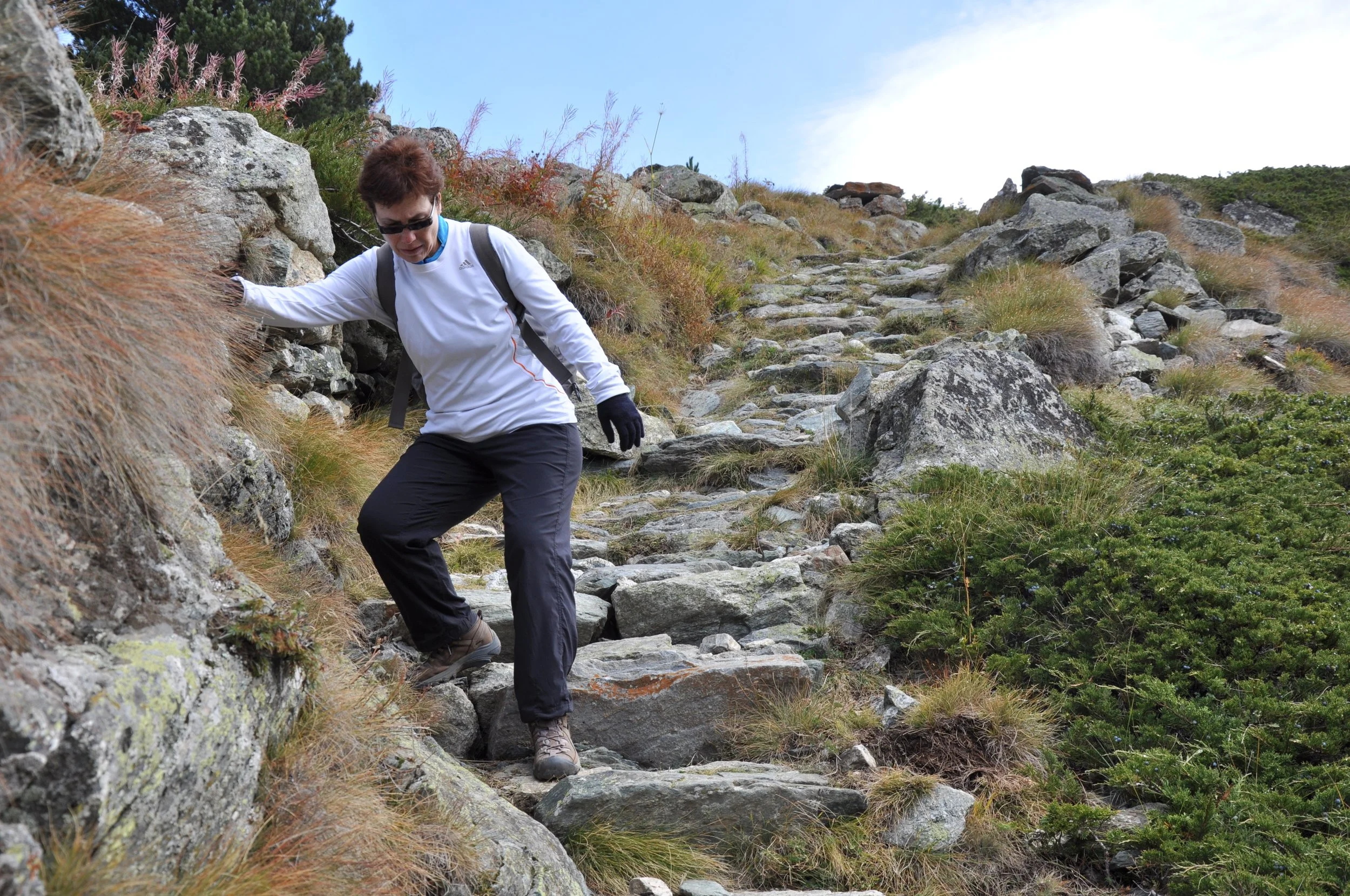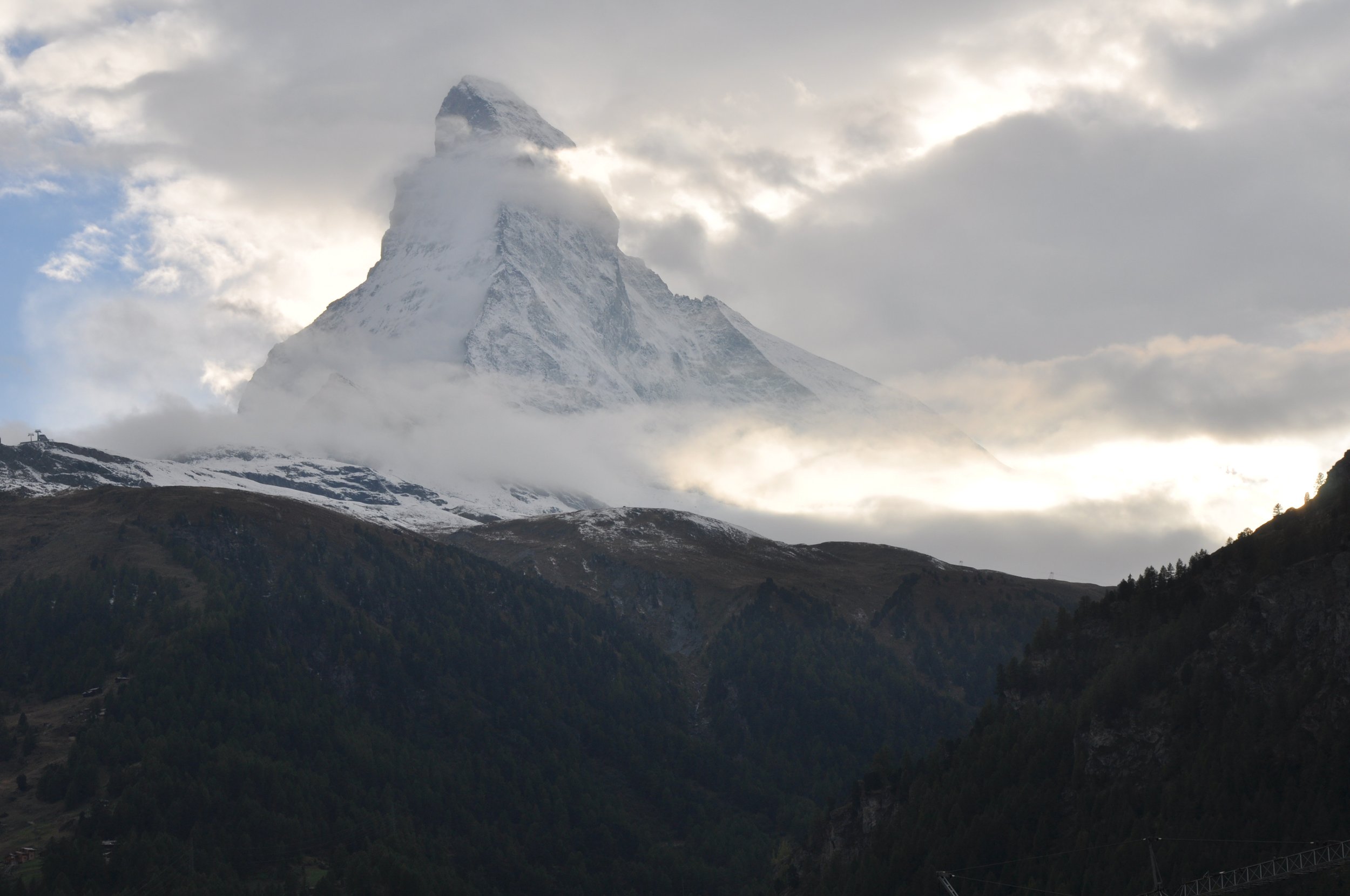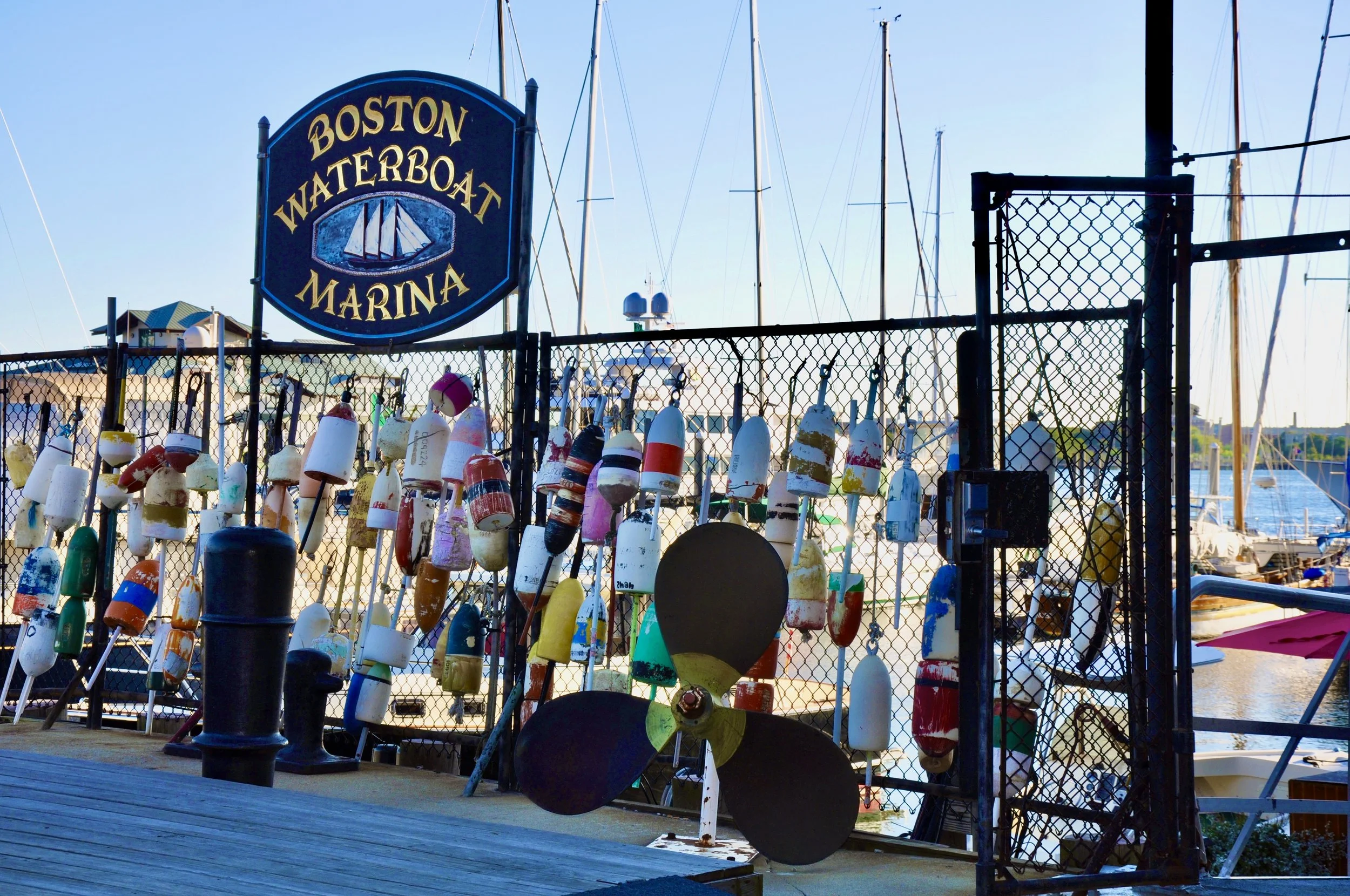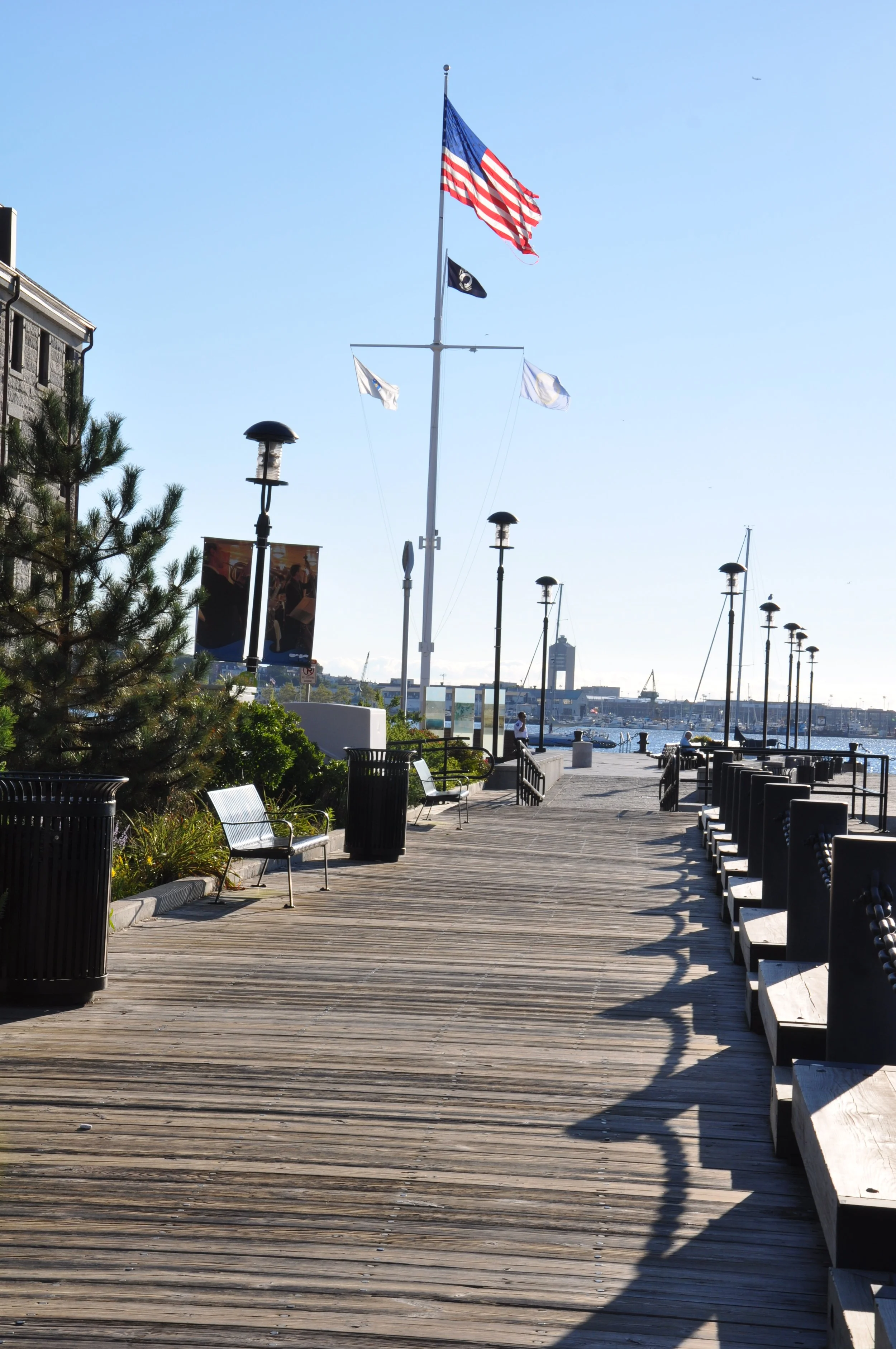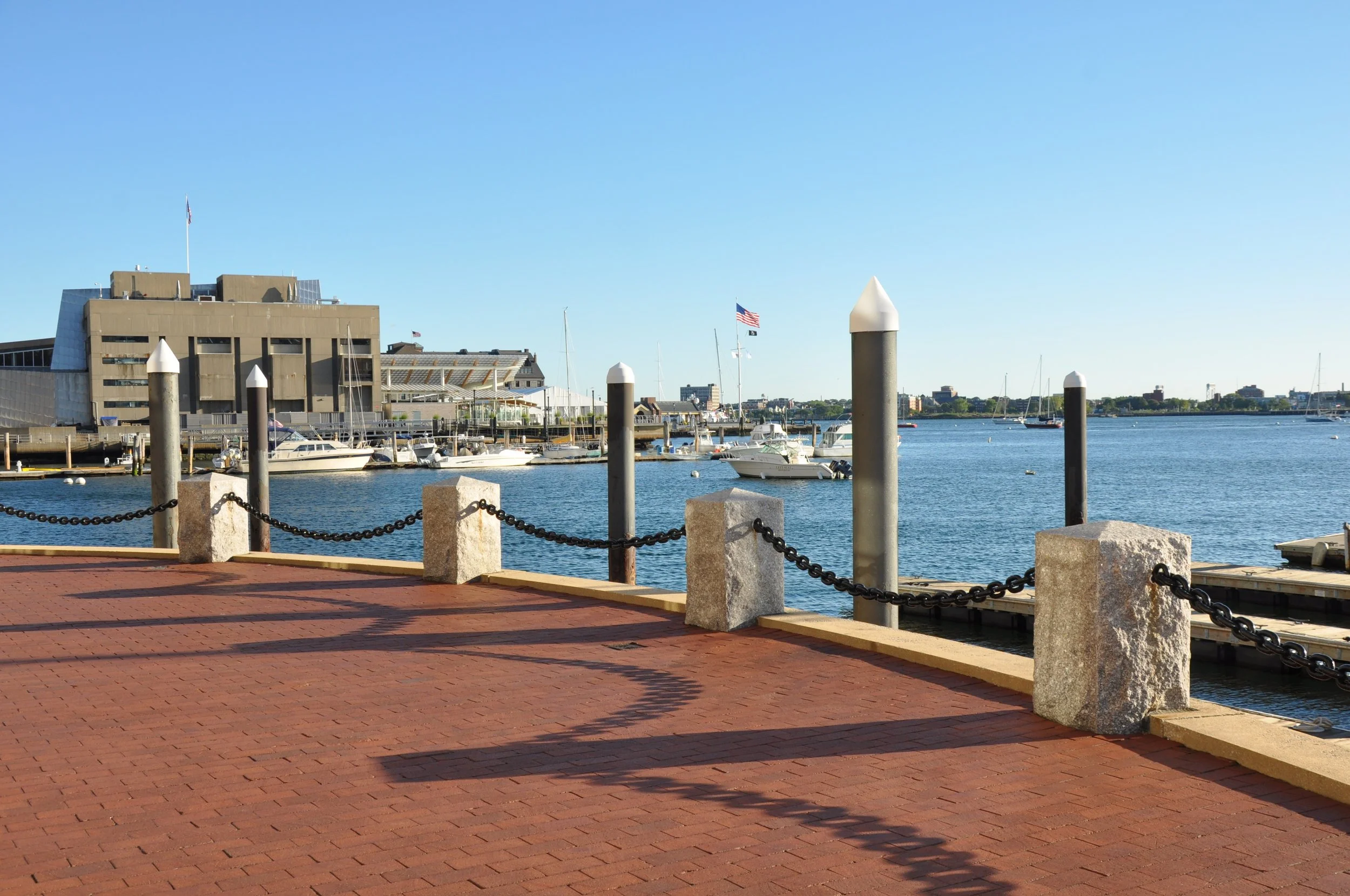A Day Just Like Today…
Zermat, Switzerland - September 2010
Preamble:
I wrote this story four years ago, on the 20th anniversary of the 9/11 terrorist attacks in the United States. It recalls my experiences on that tragic day, long before expat life or this blog were on my radar. As fate would have it, JB and I were in Europe, six hours ahead of the east coast. As a result, we had already experienced most of a day before the stunning events in New York City, Washington DC, and Shanksville reset our lives as individuals and as a nation. Though on the surface my narrative of that day is simply a travel story, perhaps it can also be read as a parable: a cautionary tale against the hubris of invincible thinking, a reminder to be attentive to the course ahead, and to recognize that the best way forward is often not the easiest path.
…..
I can hear the morning announcer on NPR saying, “it was a day just like today;” a bright and clear September gem.
As I lace up running shoes and lock the front door behind me, images of that now infamous calendar day, twenty years ago, rush back through the corridors of my memory…
My husband and I were in Lugano, Switzerland. Often referred to as the country’s “Little Italy,” the city is nestled in the Italian speaking, lake region that boarders its Mediterranean neighbor. This last week of our vacation promised to be a sweet intersection of Swiss precision and Italian “dolce vita;” perfect for an engineer and a writer. Having spent the previous week exploring more urban locations, Lugano’s lakeside setting and nearby Alps offered the opportunity to indulge our mutual love of hiking.
Blissfully unaware of the events that would transpire that day, we rose early Tuesday morning for a quick breakfast, equipped a daypack for hiking, and hopped on a train headed to the Lepontine Alps. The hour and a half ride slipped past deep teal lakes and penetrated the Saint-Gotthard Massif via the dramatic 15-kilometer-long Gotthard Railway Tunnel that ends in Airolo, Switzerland. We disembarked from the train with just a handful of other passengers, as the mountain town was enjoying the calm between its seasonal invasions of summer hikers and winter skiers.
Airolo, Switzerland https://en.wikipedia.org/wiki/Airolo
Within minutes, our boots crunched along a moderate loop trail that should have ensured an early afternoon return and relaxing ride back to Lugano.
Hawks and airplanes soared above through a clear cobalt sky; the rarefied air so thin, it seemed their wings might fracture the vitreous expanse into crystalline shards. We climbed the switchbacks upward, heeding bright yellow signs that mark the walking distance and average time to lakes, villages, and intersecting trails. Alone on the trail, the hours passed with little more than the sound of our breathing, the metronome of our unified march. As the tree line gradually retreated below, we paused for water and stunning vistas. But as the noonday sun began to arc westward, tenuous clouds gathered, diminishing the earlier warmth. We became uneasy as the overcast sky, a rising wind, and the pungent scent of ozone cautioned impending change. After one final upward turn, the trail halted abruptly at a steep rockface, impassable without mountaineering gear.
The realization that we had lost our way descended like the weight of the thickening clouds.
We wondered how we had failed to stay on course: was there a critical sign felled by an avalanche or rockslide; did we miss an obvious turn, distracted by the beauty of the day or the effort of steady progress; should we have packed rain gear despite the clear skies that first promised a routine journey? With weather and time increasingly against us, we put questions aside and used the advantage of our elevation to see what looked like a distant way back toward the town without retracing our entire journey.
Unfortunately, the way forward meant traversing a path barely wide enough to place one foot beside the other. The precipice dropping off to our left was steeper than my mind was able to, or wanted to, comprehend. Without the goatlike balance of my husband, I leaned toward the mountain and grabbed one dubious bit of scrub brush after another. Blood pounded in my ears as I struggled to breathe against panic’s pressure and gasped each time a foot hold slipped, launching loose stones to a landing too far below to hear. I was too tired for tears when we safely reached the end of the harrowing stretch and engaged a more generous and gradual descent.
The Matterhorn, Zermatt, Switzerland
By the time we returned to the small railway station café, it was nearly 3:30, too late for lunch and too early for the next train back to Lugano.
We dropped wearily onto bistro chairs, ordered espressos, and sipped the dark elixir in an exhausted stupor – only vaguely aware of the animated voices emanating from the TV over the bar. But once the caffeine revived our attention, we realized that a uniformed railway worker, seated at the bar, kept looking back and forth from us to the TV. Our eyes followed his to the screen replaying the image of a skyscraper suddenly ripped apart by an airplane. It looked like the hand of Godzilla had swiped through its upper floors and tossed the buildings bones into the bright blue sky.
We instantly recognized New York City’s Twin Towers, but assumed the dramatic scene was just the trailer for a blockbuster movie. Then the railway worker, who must have heard us speaking English, pointed in our direction and persuaded the bartender to change the local Italian news station to CNN. Everyone in the room then turned to watch us as we watched the same image, but now with a time stamp indicating 8:46 a.m. EST. We began to process the horror of the unthinkable -- the image was real and within minutes it was replaced with live footage of the tower collapsing to the ground.
Our ride back to Lugano, and the immediate days that followed, passed in a strange ether-like fog.
Gradual acceptance of what we had seen began to yank our thoughts back and forth between worrying about the safety of unreachable loved ones to the logistics of returning home with all airplanes to the US grounded. After some deliberation, we left Lugano and returned to Zurich, where our trip had begun, so that we could more quickly respond when flights resumed. Once there, we joined other stranded travelers at our hotel. We watched the news and waited for our country to rise from paralyzing grief: to face the countless demands of recovery, from the mundane to the extraordinary. Less than a week later, Swissair scheduled us to take their first flight that would land in Boston since American Airlines Flight 11 departed from Logan Airport with five terrorists on board and wreaked utter devastation 45 minutes later.
When we arrived at Zurich Airport, it was eerily calm and controlled. A huge banner guided all passengers destined for the US into a segregated area where military personnel removed every item from our carry-on bags. Mine was packed to the brim with Swiss chocolates, a few tampons, and a book. The young soldier tasked with examining the contents blushed and, with just a slight pause, asserted that I clearly had “all of the essentials.” It was an awkward, but welcome moment of comic relief and human connection. Before boarding, we were escorted to the tarmac, where luggage stood like tombstones, and we were instructed to identify our checked bags. Anything unaccounted for would not be put on the plane. The flight was subdued. Some passengers quietly shared stories of “where they were when…” while others preferred the privacy of silence.
Everyone cheered when the aircraft’s wheels touched American soil.
The waiting area at the arrival gate was atypically empty. We all walked somberly down the long dim corridor leading to US Customs and Border control. As we filed into its cavernous space and joined passengers from other flights, officers shouted sharp orders to confused travelers. Amid the chaos, we tried to follow instructions segregating everyone into long lines by national origin. When it was our turn to present passports and answer the officer’s questions, the aggressive tone of his probing was foreign to us. We felt defensive and suspect, more like aliens than citizens. We recounted every detail of our itinerary and eventually allayed any concern that we harbored nefarious intent.
Shaken, we took the escalator down to baggage claim and stared blankly at the revolving carousel, waiting for it to slowly belch up one bag at a time. With ours finally in tow, we joined the line to wait for a taxi ride home. When we opened the door to our apartment, it was with a greater sense of relief than ever before. However, I couldn’t shake the uneasy feeling that we had also crossed the threshold to a new, uncertain era that had begun in our absence.
But today, September 9, 2021, we mark the passing of two decades since that paradoxically beautiful September morning, “a day just like today.”
Upon reflection, that day seems both far away and yet strangely present. The world has recently faced another equally unforeseen enemy that grounded planes, isolated us for months in our homes, and stressed health care systems to the breaking point. This “viral” enemy took more than 10 million lives while we waited for science to develop a unique weapon of war: a vaccine to fight a new, deadly member of the coronavirus family. The pandemic has raised similar questions to those asked after the 9/11 attacks: how did we not see this coming, who is to blame, how do we prevent this from happening again?”
And as limited air travel resumes, newly practiced precautions -- face masks, hand sanitizers, and “distancing” – are joining the familiar liquid limitations, shoe removal, and device and body inspections at airport security. But more troubling than the slower lines and other inconveniences, is the erosion of compassion, unity, and patriotism (real or imagined) that pulled our country through the aftermath of the 9/11 attacks. Our fear of foreign enemies has shifted to fellow citizens based on political tribe, ethnic origin, or other personal identifiers.
Hence, on this twentieth anniversary of that seminal September morning, I run along Boston’s harbor and remember…
I remember the events that forever fused my personal story of a simple hike with a complex national tragedy; both raise questions of vulnerability, accountability, response, and recovery. Once again, I have the uneasy feeling that we have entered a new era, and I fear that our nation’s weakened core may prove less able than our physical bodies to recover from the scars of this assault.
…..
Along my Boston Harbor running route.
Epilogue:
Much like the 9/11 attacks 24 years ago, the global pandemic that struck the world in 2020, seems both far away and yet strangely present. The public health protocols have all but faded away, while the political and social divisions illuminated by the crisis have exponentially grown. So have my concerns that these conflicts could prove to be a fatal distraction, obscuring the signs marking a path we should have taken to preserve our union. Nevertheless, I continue to hope that we can summon the will and the courage to undertake the formidable climb toward our ever-elusive goal of “one nation, indivisible, with liberty and justice for all.”
If you would like to ask us about this post or share a similar experience,

